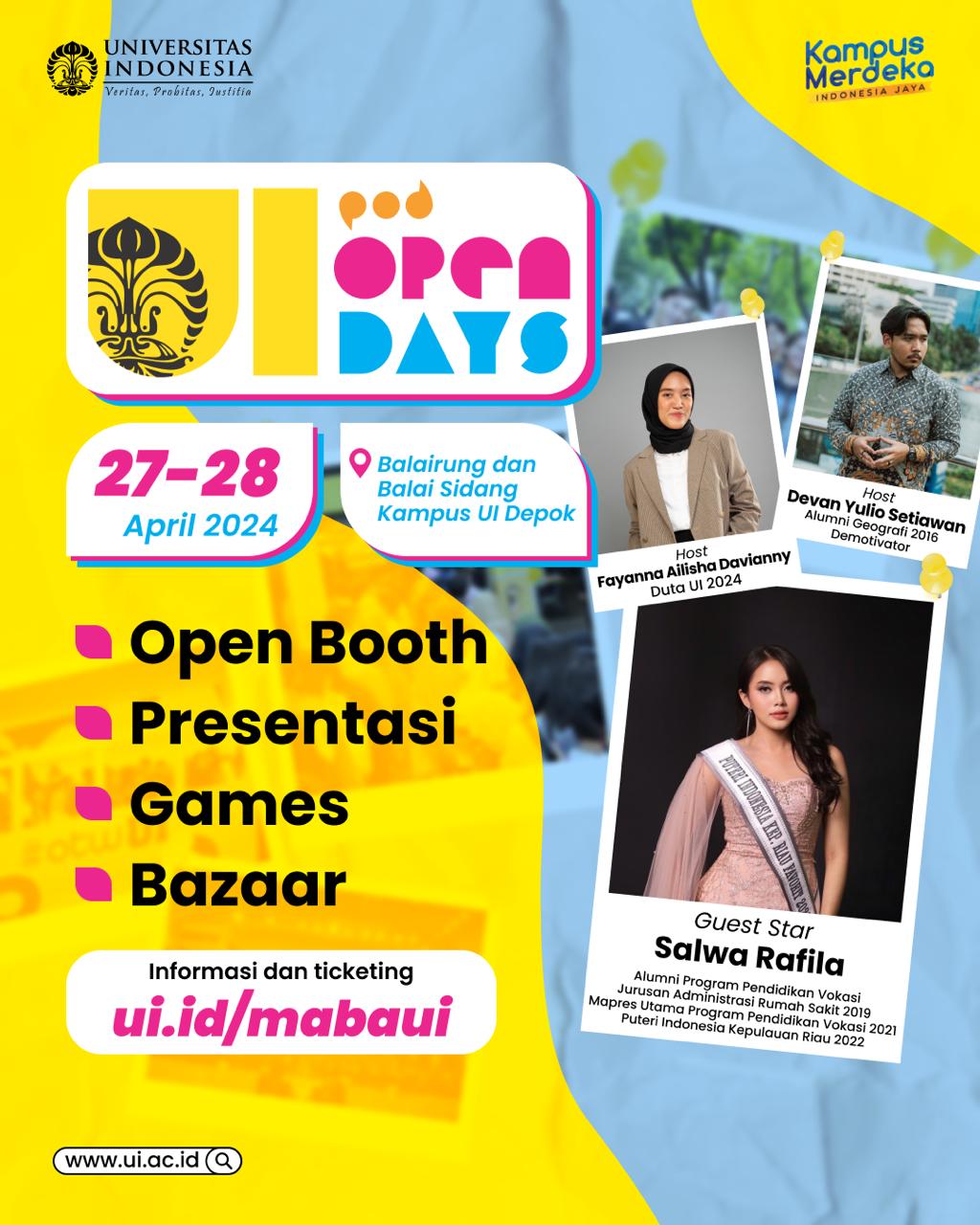Depok, November 13th 2023. Prof. Drs. Jatna Supriatna, Ph.D. is a lecturer and researcher at the Department of Biology, Faculty of Mathematics and Natural Sciences (FMIPA), Universitas Indonesia (UI) who is known as an “environmental hero”. This title was given to him in 1999 when he received the Golden Ark Award from Prince Bernhard of the Netherlands. Prof. Jatna is considered to have made a major contribution to the environment, especially in the field of nature conservation.
Starting from his love of nature, Jatna—at that time still in high school—loved climbing mountains and camping. His residence in Tasikmalaya supports him in exploring the mountains in West Java. From there, his interest in natural sciences such as geology, biology, zoology, and anthropology emerged. He was determined to choose biology as his scientific field.
While studying for his bachelor degree, Prof. Jatna had the opportunity to conduct research on orangutans in Kalimantan. For eight months, he lived in the middle of the forest with other researchers. “The research site is very far away, in the middle of the forest. To get to the village, it takes approximately 1 hour by boat, but that’s what made me fall in love with this field. From that experience, I learned a lot about the forest, about the indigenous Dayak people, and much more,” he said, describing his experience at that time.
As if supported by the universe, his love for the field of zoology opened up various opportunities for Prof. Jatna to become more involved in this field. He once joined the Indonesian Institute of Sciences and was involved in research in Sulawesi, Papua, Sumatra and Kalimantan. He also received an offer to teach at the Biology Department, FMIPA UI, which continues to this day. The opportunity to continue his master’s education also came. He chose South America, and conducted research for months in the Amazon Forest. Meanwhile, for his doctoral program, he chose to conduct research in Sulawesi with his students.
“Primatology at that time was a field that was rarely studied, which was why I mostly studied abroad to gain knowledge about primates. Wildlife conservation that I studied included orangutans, langurs, monkeys and various other species. Currently, this science is better known as conservation biology,” said Prof. Jatna.
From his experience of conducting research in various countries, Prof. Jatna realized that the science of nature conservation can be studied and applied globally. According to him, different geographical conditions in countries limit a person’s knowledge. Therefore, international conferences are needed as a medium for exchanging knowledge between one researcher and another. He emphasized, “We as Indonesians certainly understand the geographical conditions of tropical countries better than people in four-season countries, and vice versa. If we pursue this specialty, we will surely become experts in the field.”
According to him, relations with researchers at the world’s best universities need to be established considering the importance of joint research as a way to find solutions to biodiversity problems. In order to build these relationships, he has even visited 70 countries to study nature conservation in the world. Interestingly, he made “visit to a National Park” one of the conditions if he was invited to attend a conference in a country. “I once went to Bogota in Colombia. I was asked to give material about Indonesian biodiversity and I said yes, but they should facilitate me to visit to the national parks there,” said Prof. Jatna, laughing.
Prof. Jatna said that this conservation effort does not mean it will not bring in money. In fact, many economic benefits result from nature conservation. The National Park that is built can be used as ecotourism which can bring tourism economic opportunities to local communities. Apart from that, world carbon absorption is also very dependent on Indonesia’s forests.
He said, “Indonesia’s potential for carbon is around 600 billion dollars. Imagine, if we conserve, what we sell is not wood and so on, but the carbon absorption capacity of our forests. Currently, the price of carbon is 10–20 dollars/ton. In addition, all food and medicine come from nature. If we don’t take care of our nature, other people will come and take the materials we have.”
Ideas related to nature conservation were outlined by Prof. Jatna in 20 books on the environment and conservation, as well as more than 150 papers of international reputation. His contribution has led him to receive various awards, namely the Habibie Award (2008), Terry MacManus Award (2010), Achmad Bakrie Awards (2011), Lifetime Achievement from Conservation International (2017), and most recently The Bosscha Medal 2023. In fact, his name has been used as a taxon for several species including, Tarsius supriatnai, Draco supriatnai, and Cyrtodactylus jatnai.



